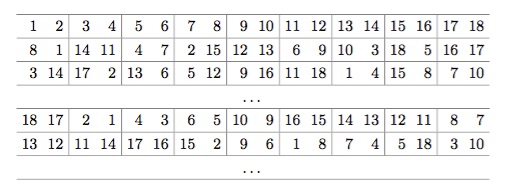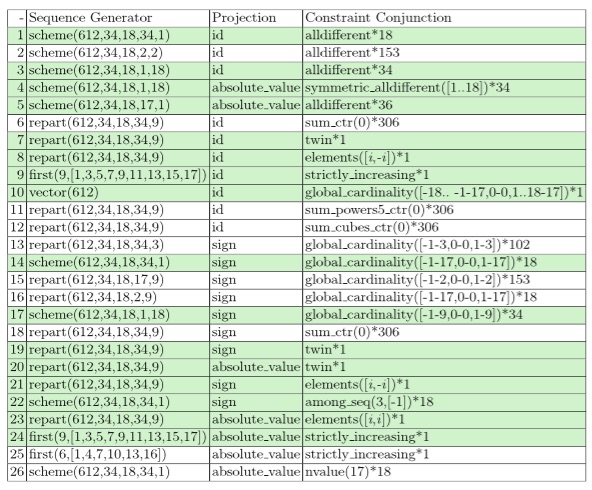Section: New Results
A Model Seeker for Learning Constraints Models from Positive Samples
We describe a system which generates finite domain constraint models from positive example solutions (e.g. see Figure 6 giving a season schedule of the Bundesliga), for highly structured problems. The system is based on the global constraint catalog, providing the library of constraints that can be used in modeling, and the Constraint Seeker tool, which finds a ranked list of matching constraints given one or more sample call patterns (e.g. see Figure 7 giving the model learned for the input data of Figure 6). We have tested the modeler with 230 examples, ranging from 4 to 6,500 variables, using between 1 and 7,000 samples. These examples come from a variety of domains, including puzzles, sports-scheduling, packing and placement, and design theory. When comparing against manually specified canonical models for the examples, we achieve a hit rate of 50 percent, processing the complete benchmark set in less than one hour on a laptop. Surprisingly, in many cases the system finds usable candidate lists even when working with a single, positive example. (see Book chapter of Data Mining and Constraint Programming)



